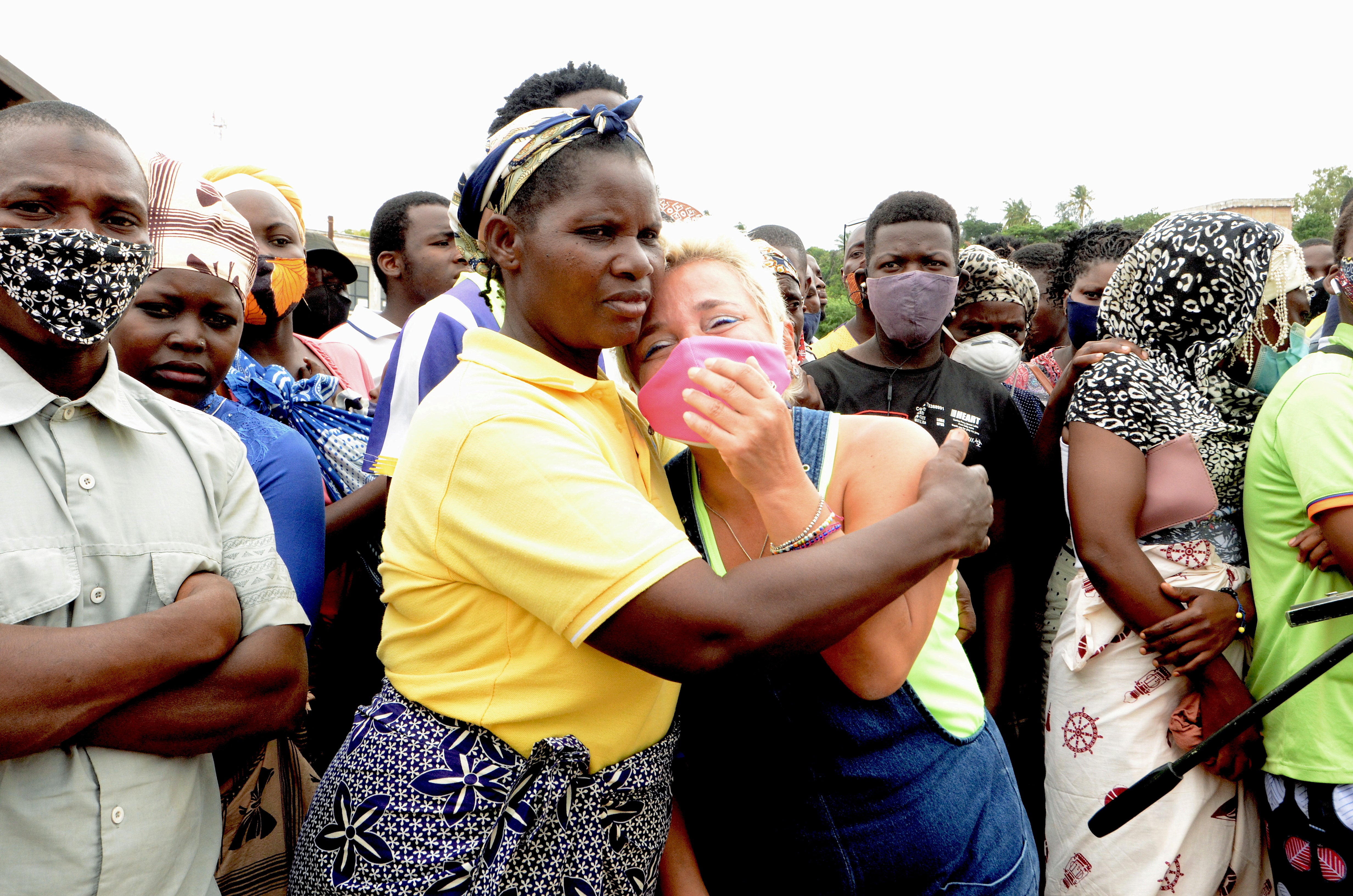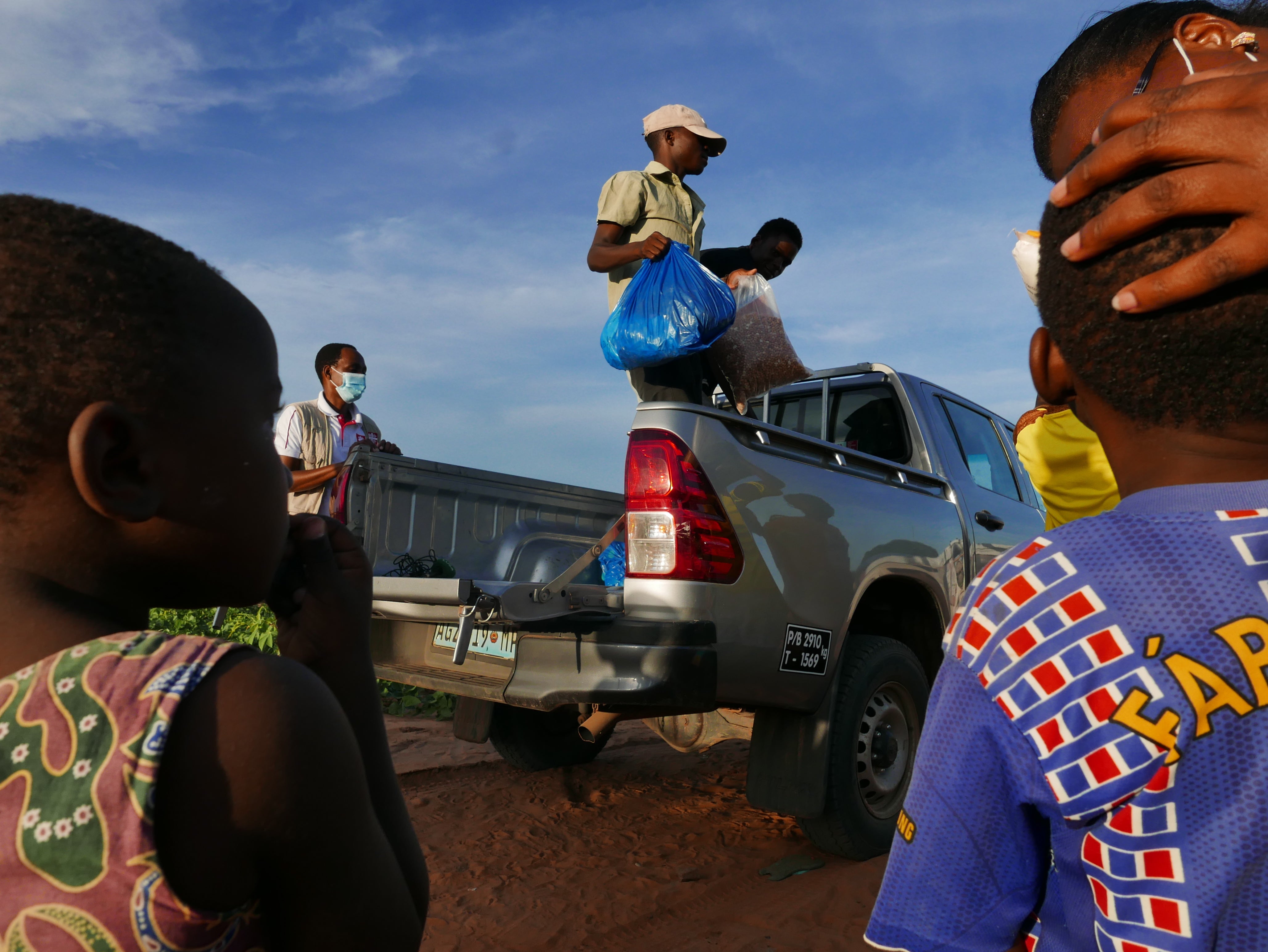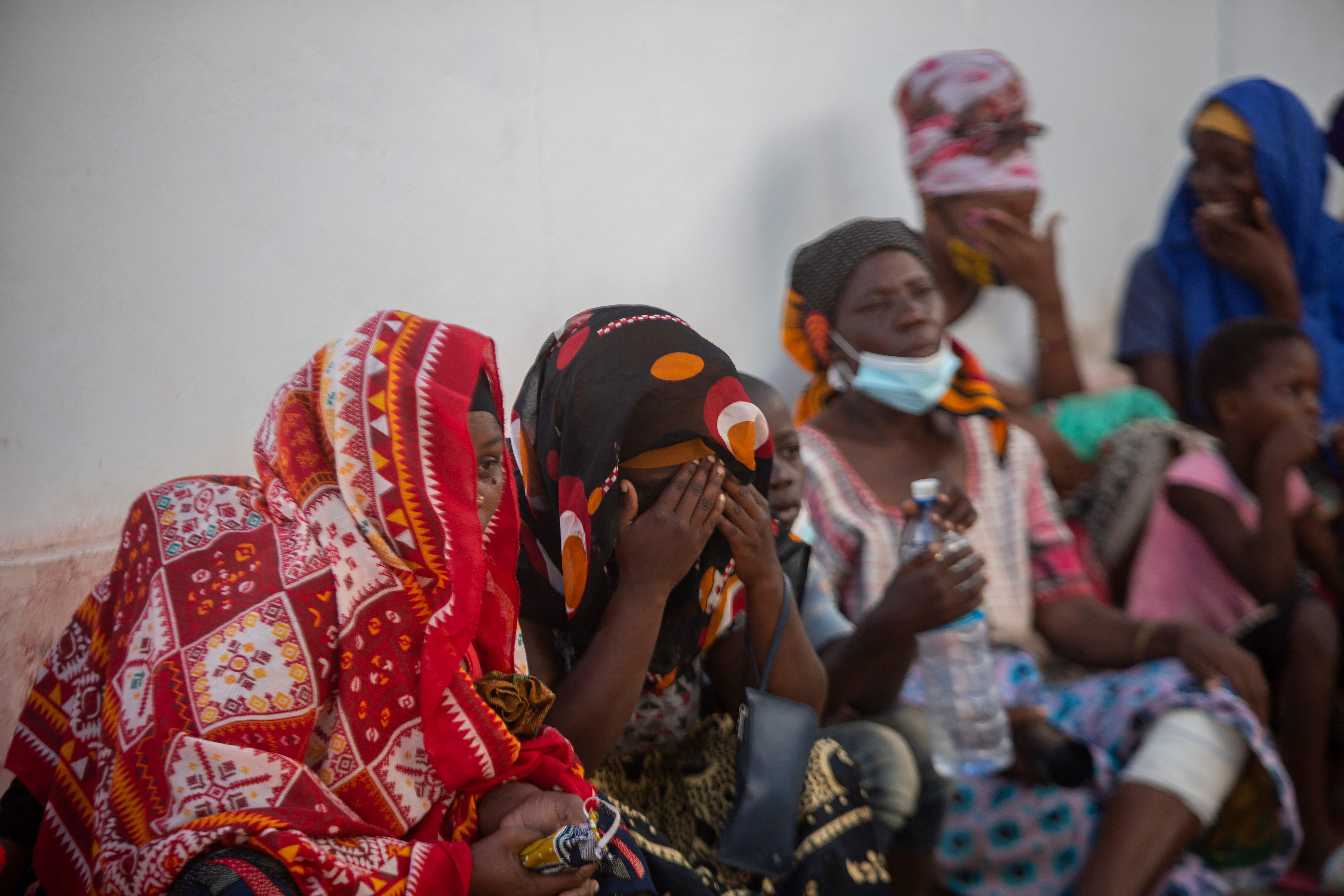The priest tried to warn them: How government failures and abuse fuelled an Islamist uprising in Mozambique
The recent brutal attack in Mozambique is to do with more than Islamic militants and has roots in the country’s poverty and inequality, reports Borzou Daragahi


In a region that is teeming with bandits, mercenaries, drug smugglers and greedy international profiteers, he was a rare flicker of hope. Bishop Luis Fernando Lisboa shone a light on the corruption of the government, the exploitative conduct of international businesses and the brutality of the security force. “The conflicts in the region have their origins in the costs of exploiting natural resources,” he said during an online conference late last year.
The priest was too vocal and too honest for his own good. After being summoned to Rome for a meeting with the Pope in December, the 65-year-old was removed from his post, dispatched from volatile northern Mozambique and relocated against his will to a backwater in Brazil.
“I would never ask to leave,” he said during a February radio interview, attempting to explain the circumstances and public pressure that led to his departure. “Those who live in lies do not like the truth. Those who practice corruption do not like to be charged for it. So these people feel inconvenienced. Whether from the government, from organisations, whoever they may be, people who occupy positions.”
Now, an Isis-linked insurgency in the country’s Cabo Delgado province has exploded and expanded, engulfing the city of Palma and displacing thousands of people. The insurgents have ties to Isis. Wielding machetes, they have cleared out villages and burnt out homes. Hundreds of civilians have been killed, including children allegedly beheaded at the hands of gunmen. Both the United States and Portugal, Mozambique’s former colonial overlord, are stepping up troop and Special Forces deployments, and the country has become a new front in the ongoing global war on terror.
An Islamist group with tenous ties to transnational terrorism calling itself al-Shabaab has claimed responsibility for the recent large-scale attack against the city of Palma, where it has cleared out thousands of people.
Read more:
But experts say that while the group has some connections to international jihadi networks, it was the Mozambican government’s own failures and abuses that fanned the flames of discontent. Those include hiring a succession of foreign mercenary organisations to stamp out an insurgency born of the legitimate grievances outlined by Bishop Lisboa in sermons, public statements and media interviews.
“He was totally outspoken, not defending the insurgents or the government, but defending the people; it’s the people who are being oppressed,” says Joseph Hanlon, an east Africa specialist at the London School of Economics. “The government is desperate that this be seen as an Islamic State jihad and has nothing to do with their failures – poverty and inequality.”
Humanitarian groups describe the situation in northern Mozambique along the Tanzanian border as dire, yet another outbreak of misery and misfortune taxing the resources of aid organisations and the patience and attention of international leaders.
Already, tens of thousands of people escaping war were sheltering in Palma after being displaced from other sections of Cabo Delgado province in earlier outbreaks of armed conflict. Now aid workers are expecting tens of thousands more to swarm camps and shelters. “Many of the people fleeing, including children, have nothing but the clothes on their backs and have had to walk for days to reach safety,” said a report by the United Nations. Nearly a million people are food insecure in the area.
“Access has been difficult in the last month,” says Saviano Abreu, of the UN’s office for humanitarian affairs. “The conflict has prevented us from delivering assistance. People who were receiving access to vouchers were not able to find products at the market. In addition, we have thousands of thousands of people trying to leave but not able to.”
Mozambique, a Portugese-speaking nation of 30 million along the Indian Ocean, has struggled with civil war and insurgency since gaining independence from Lisbon in 1974. Blessed with fertile farmlands and minerals, it has begun to prosper, luring foreign investment. But development has been uneven, with peripheral regions like Cabo Delgado left out.
The country is majority Christian, but has a sizeable Muslim minority. The insurgency that has flared up in recent weeks began in 2017, as Islamist groups inspired by radical preachers in neighbouring Tanzania and within global jihadi networks grafted their ideas onto an impoverished corner of east Africa. Local anger had been exacerbated by the promises that never materialised of offshore gas riches from an investment by French energy giant Total. Cabo Delgado is also rich in ruby gems, as well as a transit point for international narcotics trafficking.

Rather than benefit the people, the investment projects have contributed to the forcible displacement of some.
“It was always the marginalised province,” says Hanlon. “There’s a lot of discontent – a lot of young people with little prospects. People were being pushed off land and very few people getting compensation.”
The radical Islamist preachers took root espoused a synthesis of hardline religious law and leftist social justice, sometimes clashing with established theologians for their unorthodox blending of faith and class warfare. They called for social justice and an end to corruption as much as sharia.
Militants began training in 2016, tutored by jihadi veterans from nearby Tanzania. It was a time near the height of Isis’s global presence. The first attacks began in 2017 and the movement spread like wildfire. “It grew very quickly,” says Mr Hanlon. “Because the socialist message had real resonance.”
They targeted civil servants and symbols of state power. The fighters, estimated at several thousand, are a mix of locals and outsiders.
“The majority are Mozambicans. But there are foreign fighters,” says Alex Vines, a specialist on African security matters at Chatham House. “This is a regional issue that involves Tanzania. Some of the early drivers of radicalization were from Tanzania.”
As the region became yet another Islamist insurgency hotspot, the Mozambican government’s response became a case study in what not to do. It dispatched poorly paid soldiers who shook down residents for their meagre belongings and roughed them up.
They hired several military contractors, including firms with links to controversial US war profiteer Erik Prince and the Kremlin-backed mercenary network Wagner Group, to carry out operations. The South African firm Dyck Advisory Group provided air support, and allegedly used barrel bombs dropped out of helicopters to target rebel hideouts. In June, they allegedly struck a hospital.
“The people of Cabo Delgado are caught between the Mozambican security forces, the private militia fighting alongside the government and the armed opposition group locally known as ‘al-Shabaab’ – none of which respect their right to life, or the rules of war,” Deprose Muchena, of Amnesty International, said in a report issued last month. “All three have committed war crimes, causing the deaths of hundreds of civilians.”
The government is now ending its deal with Dyck and bolstering the use of the South African firm Paramount, which is planning to deploy several military helicopters to Cabo Delgado. The reliance on foreign mercenaries is controversial, but experts say the government has little choice.
“The army was never designed for this type of counterinsurgency,” says Vines.
Nearly 700,000 civilians have been displaced by the conflict, with more arriving to shelters that include sports stadiums daily. In a phone interview, Shelly Thakrel, of the World Food Programme, describes the plight of one woman, a farmer in Palma, who fled with her four children, including a pregnant daughter, in the latest round of fighting which began on 24 March.
“She hid in the bush when she heard gunshots and heard of people’s homes being burnt out,” she says. “She saw the insurgents. She couldn’t be sure if they were pursuing her or not. A military chopper was heard overheard and the insurgents fled.”
She managed to board a ferry for the arduous journey south to Pemba. “She doesn’t know if her mother is alive or not,” says Thakrel.
Unique among international organisations and players in Cabo Delgado, Bishop Lisboa was willing to speak about such wrongs. “He was very vocal,” says one international official, who spoke on condition that he not be identified for fear of jeopardising his organisation’s ability to work in Mozambique. “He was one of the only people talking about what’s happening.”
But his outspokenness had a price. He became the target of official pressure, as the government of President Filipe Nyusi and his long-ruling Frelimo party cracked down on any narrative other than their own. Government-affiliated newspapers began targeting him.
Last year Nyusi himself condemned “foreigners” who live in Mozambique and speak of human rights, sparking attacks against the bishop on social media. A pro-government mouthpiece attacked him as a “a criminal [who] should be expelled”, according to Amnesty. He has been accused of fomenting “rebellion against the government” in pro-regime news outlets.
“In the past, similar smear campaigns have led to the murder of human rights defenders, journalists, government critics and professors,” Amnesty warned.
The Independent was unable to reach Bishop Lisboa in Brazil.
“I had a few messages,” the bishop said in a radio interview. “I received a message or two from someone, advice from someone close. ‘Look, Mr Bishop, be careful. You should talk like this or talk like that.’”
He said the threats were never explicit, but the message was clear.
“People who like to do that kind of thing never do it directly,” he said. “[They do it] indirectly, to demonstrate that person is not welcome ... It happens to journalists, it happens to human rights activists, and it also happens to members of the Church.”

An international aid official describes a pattern of increasingly menacing behaviour toward the bishop. “He wasn’t feeling safe any more – not from the armed groups, but actually from the other side, the other players of the conflict,” says the official. “He was pressured, and I don’t think he was safe any more. He couldn’t be here any longer.”
Bishop Lisboa said news of the threats reached the Vatican, and so worried senior Church officials that he was summoned to see the Pope. “I recognise the delicate situation of the moment and the Holy Father, analysing the situation in Mozambique, decided to transfer me,” he said in the radio interview.
The bishop was removed from his post in February, and within weeks the insurgency worsened dramatically.
“We don’t see this as something that has an easy solution,” says one international official. “It has been escalating, and escalating very quickly. I don’t think the government has been playing a good role. I don’t think the international companies have been playing a good role. The drug routes are expanding. The violence is increasing. And I fear it will go to the next level kind of war.”
Join our commenting forum
Join thought-provoking conversations, follow other Independent readers and see their replies
Comments